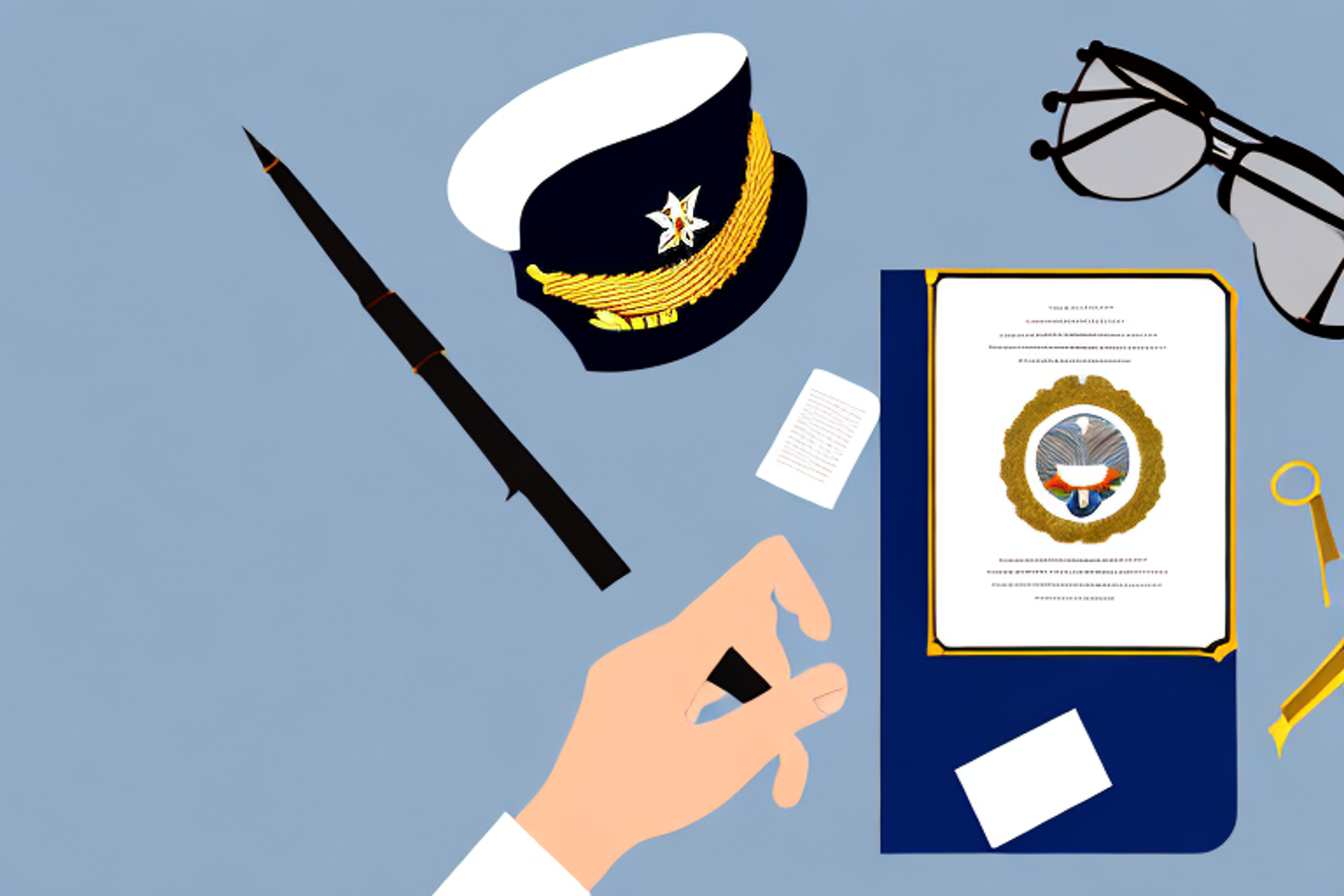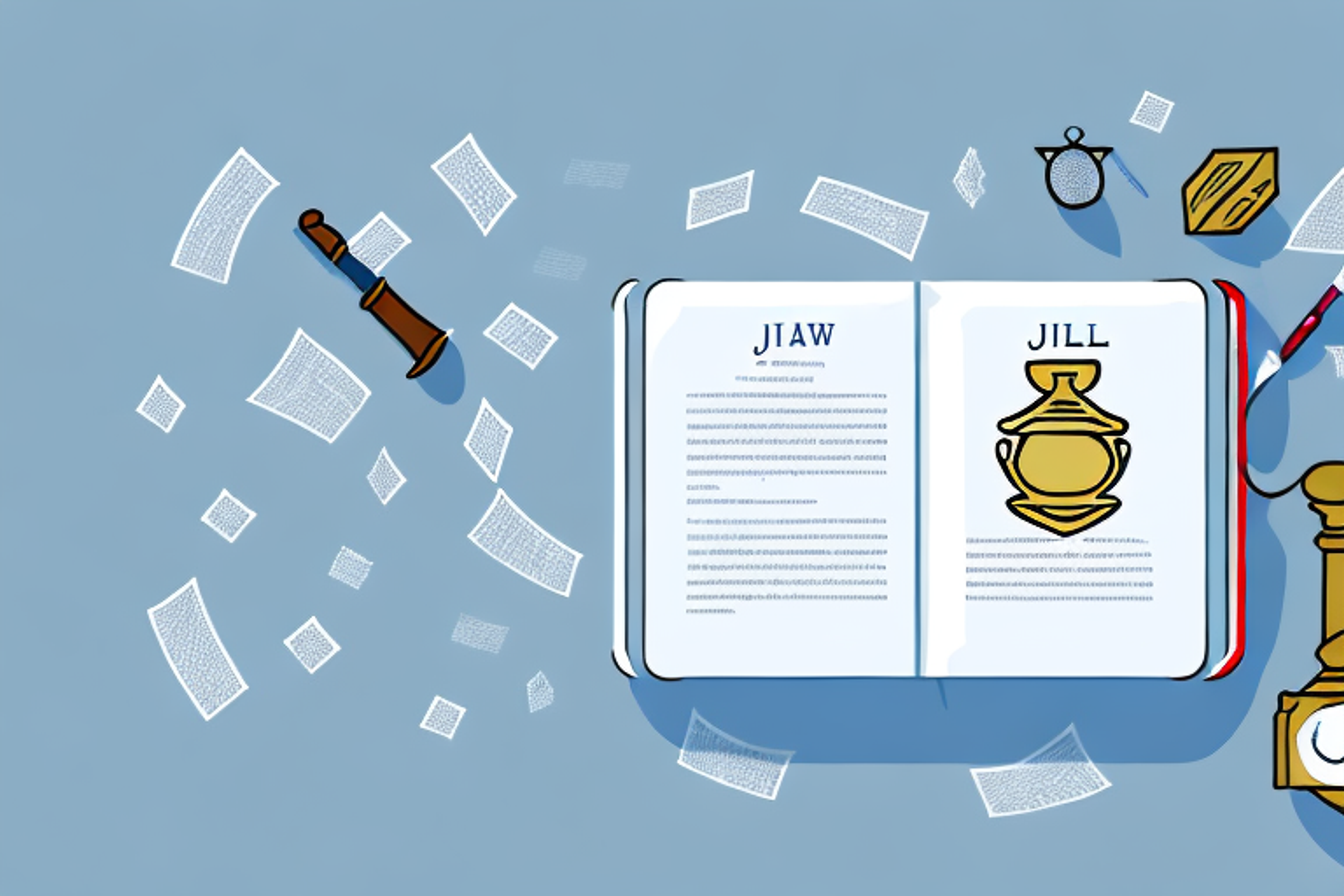How to Apply to Law School as a Veteran: A Comprehensive Guide
If you're a veteran looking to apply to law school, this comprehensive guide has got you covered.
Posted April 10, 2025

Table of Contents
Free Event

Featuring Indrani S.
Law School App Office Hours with a Former Stanford AdCom Member
Starting Thursday, April 17
11:30 PM UTC · 45 minutes

Featuring Indrani S.
If you're a veteran considering law school, you may be wondering where to start. The process of applying to law school can be overwhelming, but with proper guidance, it can be a straightforward process. In this comprehensive guide, we will break down everything you need to know to apply to law school as a veteran. We'll cover the benefits you're entitled to as a veteran, how to prepare for law school, and strategies for navigating the application process. So let's dive in.
Why Law School May Be a Good Option for Veterans
Law school may be a good option for veterans for several reasons. First, the legal field emphasizes teamwork, leadership, and critical thinking, all traits that the military instills in its service members. Additionally, law school can provide a sense of structure and purpose that veterans may be craving after leaving the military. Finally, the law can be a powerful tool for positive change, and many veterans are drawn to careers in public service.
Another reason why law school may be a good option for veterans is the potential for financial stability. The legal profession is known for its high earning potential, which can provide veterans with a stable income and financial security. Additionally, many law firms and organizations offer benefits and support for veterans, making the transition to civilian life smoother.
Furthermore, law school can provide veterans with a platform to advocate for issues that are important to them. Many veterans have firsthand experience with the challenges faced by military personnel and their families, and pursuing a legal career can allow them to make a difference in areas such as veterans' rights, healthcare, and employment. By using their legal skills and knowledge, veterans can become powerful advocates for positive change in their communities and beyond.
Understanding the Benefits Available for Veterans Applying to Law School
As a veteran, you may be eligible for several benefits when applying to law school. The GI Bill can cover the cost of tuition, fees, and other educational expenses. Additionally, many law schools offer veteran-specific scholarships and resources. You may also be eligible for job placement assistance after graduation through programs like the Department of Justice's Honors Program. Be sure to research all available resources before applying.
It's important to note that some law schools also have dedicated veteran support services, such as counseling and networking opportunities. These resources can be invaluable in helping veterans navigate the unique challenges of transitioning from military to civilian life and pursuing a legal career. Don't hesitate to reach out to these support services and take advantage of the resources they offer.
Preparing for Law School as a Veteran: What You Need to Know
Law school is an intensive and demanding experience, and proper preparation is essential for success. Before you apply, make sure you have a solid grasp of legal concepts and practices. This can include taking practice LSAT exams, working with a tutor or mentor, or enrolling in specialized programs like the Marshall-Brennan Fellowship.
As a veteran, you may also want to consider utilizing your military benefits to help finance your legal education. The Post-9/11 GI Bill can cover up to 100% of your tuition and fees, as well as provide a monthly housing allowance and stipend for books and supplies. Additionally, some law schools offer special scholarships and programs for veterans.
It's also important to consider the unique challenges that veterans may face in law school, such as adjusting to a new academic environment and balancing coursework with other responsibilities. Many law schools have resources and support systems in place for veterans, including veteran-specific student organizations and counseling services.
Choosing the Right Law School Program for Your Needs as a Veteran
Choosing the right law school program is crucial for a successful experience. Factors to consider include location, program structure, cost, and the availability of veteran-specific resources. Additionally, be sure to research the faculty and alumni network, as these connections can be valuable throughout your legal career.
As a veteran, it is important to also consider the level of support and understanding the law school has for military service members. Look for schools that have a designated veterans affairs office or offer resources such as counseling services and networking events specifically for veterans. It is also worth researching if the school has a student organization for veterans, as this can provide a sense of community and support during your time in law school.
Navigating the Application Process as a Veteran: Tips and Strategies
The law school application process can be complex and time-consuming, but with a few strategies, it can be manageable. First, start early and stay organized. Develop a timeline for the application process and keep track of deadlines and requirements. Second, leverage your connections. Reach out to alumni networks, legal professionals, and career counselors for guidance and advice. Finally, be prepared to tell your story. Highlight your experiences in the military, and emphasize how they have prepared you for a career in the legal field.
As a veteran, you may also be eligible for certain benefits and resources that can help you navigate the law school application process. For example, the GI Bill can provide financial assistance for education and training, and the Department of Veterans Affairs offers counseling and support services. Additionally, many law schools have programs and initiatives specifically designed to support veterans and their unique needs.
It's important to do your research and explore all of the options available to you. Don't be afraid to ask questions and seek out assistance when needed. With the right resources and support, you can successfully navigate the law school application process and achieve your goals as a veteran in the legal field.
Highlighting Your Military Experience in Your Law School Application
Your military experience can be a significant asset in your law school application. Be sure to highlight your leadership roles, teamwork experience, and problem-solving skills. Additionally, discuss any specialized training you received, such as cultural sensitivity or conflict resolution training. Finally, emphasize your commitment to public service and your desire to make a positive impact on the legal profession.
Another important aspect to highlight in your law school application is your ability to work under pressure. The military often requires individuals to perform under high-stress situations, and this experience can translate well into the legal field. Be sure to provide examples of how you have handled pressure in the past and how you plan to use this skill in your legal career.
Furthermore, if you have received any military awards or commendations, be sure to include them in your application. These awards can demonstrate your dedication, hard work, and leadership abilities. They can also set you apart from other applicants and show that you have a proven track record of success.
Crafting a Strong Personal Statement that Stands Out to Admissions Committees
Your personal statement is an opportunity to showcase your unique qualities and experiences. Craft a personal statement that is concise, engaging, and appeals to the admissions committee's values. Share specific examples of your experiences, and be sure to tie them back to your desire to pursue a legal career.
One important aspect to keep in mind when crafting your personal statement is to avoid cliches and generic statements. Admissions committees read hundreds of personal statements, so it's important to make yours stand out. Instead of using overused phrases, try to be specific and authentic in your writing.
Another tip is to have multiple people review your personal statement before submitting it. This can include professors, advisors, or even friends and family members. Getting feedback from others can help you identify areas for improvement and ensure that your personal statement is polished and effective.
Securing Strong Letters of Recommendation from Military and Academic Sources
Strong letters of recommendation can be essential to a successful application. Seek out letters from professors, supervisors, or colleagues who can speak to your character, work ethic, and leadership qualities. Additionally, consider seeking letters from military officers or other veterans who can speak to your experiences in the military.
It is important to give your recommenders enough time to write a strong letter. Reach out to them at least a month before the application deadline and provide them with all the necessary information, such as the application requirements and your resume. You can also offer to meet with them in person or over the phone to discuss your goals and experiences, which can help them write a more personalized and effective letter.
Maximizing Your GI Bill Benefits to Cover the Costs of Law School
The GI Bill can be a valuable resource for covering the cost of law school. Be sure to fully understand your benefits and how they can be applied to law school expenses. Additionally, consider seeking out additional resources like scholarships, grants, or work-study programs to supplement your benefits.
Connecting with Other Veterans in Law School: Resources and Support Systems
Connecting with other veterans can be a valuable support system throughout your law school experience. Seek out veteran-specific resources on campus, such as organizations, mentorship programs, or affinity groups. Additionally, consider joining legal organizations that focus on veterans' issues to expand your network and make a positive impact on the legal profession.
Overcoming Common Challenges Faced by Veteran Students in Law School
While law school can be challenging for all students, veterans may face unique obstacles. These can include adjusting to academic culture, navigating bureaucracy, or managing mental health challenges. Seek out resources like counseling, tutoring, or peer support networks to overcome these challenges.
Exploring Career Opportunities for Veterans with a Law Degree
A law degree can open up a wide range of career opportunities for veterans. Consider exploring careers in public service, government, or private practice. Additionally, seek out career development resources like job fairs, internships, or mentorship programs to build your network and gain valuable experience.
Making the Most of Networking Opportunities as a Veteran in the Legal Field
Networking can be a valuable tool for building your career in the legal field. Attend networking events, join professional organizations, and seek out mentors or sponsors who can provide guidance and advice. Additionally, leverage your military background as a unique selling point in your networking efforts.
Finding Work-Life Balance as a Veteran Student in Law School
Law school can be demanding and time-consuming, but finding a balance between work and personal life is essential. Prioritize your physical and mental health, make time for hobbies and relaxation, and seek support from friends, family, and professional resources as needed.
Applying to law school as a veteran can be a daunting process, but with the right resources and support, it can be a transformative experience. Use this comprehensive guide as a starting point, and be sure to reach out to veteran-specific resources on campus and in the community throughout your law school journey.











